Text mit freundlicher Genehmigung übernommen von der Seite des Youth Network for River Action.
30.03.2017 07:07 by Admin
Event with Alternative Nobel Prize Winner inspires blue movement in Berlin
The global water crisis is expected to increase water shortage. Droughts and floods are also expected to increasingly impact Europe. In addition, there are cut-offs from water supply that especially hit the poor, as does the commercialization of drinking water as bottled water. According to Maude Barlow, a renowned water activist and book author, this is a perfect storm that affects the countries of the global North and not just the global South. So what to do?
In a discussion meeting at the Berlin House of Representatives, 29.3.2017, Barlow propose that we need to understand water as a commons, with public interest having priority over private economic interests. For this, she proposed at the Berlin event that towns, organizations and networks become a “blue community”.
A “Blue community” endorses water and sanitation as a fundamental human right, has a publicly owned and operated water provision and wastewater treatment, and promotes public water over bottled water, phasing out the use of bottled water in public institutions and events. (It turned out that even at this Berlin event, bottled water was served – not water from the tap!).
The “blue community” seeks to strengthen public action for nature conservation and access to safe drinking water and sanitation for all. So far, there are 19 blue communities in Canada; in Europe Paris and Bern have become blue communities. In addition, universities, trade unions and the world council of churches have endorsed the concept.
What do Berlin actors think about it?
There were many participants at the event. So here is just a selection of voices from Berlin organizations and initiatives.
Jens Feddern, from the Berliner Wasserbetriebe, said water services belong into the public hand and that he is increasingly surprised in how many places water is not yet served from the public tab. He wants to check, he said, if the Berliner Wasserbetriebe could not supply some free water jugs to the Berlin House of Representatives! In addition, he argued for more public fountains in Berlin; and for public fountains as a gift to the host when the mayor of Berlin is visiting other towns – like the public fountain donated to Berlin by the city of Vienna. It is dedicated to the “Thirsty of Berlin” (see picture). Finally, he pointed out that using water from the tab, rather than buying bottled water, is a simple and effective way of reducing co2-emissions.
Dorothea Härlin, Berliner Wassertisch, argued for Berlin as a “blue community”. She said that adopting the concept the new Berlin government could make a sign for a positive, blue future for Berlin. Such a self-obligation would inspire both the administration and civil society. A concrete opportunity are new construction projects of Berlin and the water management there.
Hartwig Berger, ökowerk, also endorsed the “blue community” but questioned whether more is needed: should local communities not be actively engaged in the organization of water provision? How to make public water provision more participatory? What are the lessons from other towns? These difficult questions did not get answered during the meeting, and thus call for a more sustained debate.
Franziska Killiches, a tip: tap e.V., also spoke in favor of the blue community label – especially if something concrete is happening with it. Her concrete examples: public water not only in toilets, were people are unlikely to use it; public drinking water in places of public transportation; water education, especially of newly arrived Berliners. She pointed out that many refugees do not know that they can drink water from the tab, and end up spending a significant part of their budget on buying bottled water from supermarkets – at a much higher price, and frequently of much lower quality.
Christa Hecht, Alliance of Public Water Providers (AÖW), noted that yesterday at the opening of the Berlin Water Expo, many of the main speakers called Berlin a “blue city”. She pointed out that the blue community could be an option to concretize a way of talking that is widely used, but not necessarily with much content.
What do the politicians say?
Daniel Buchholz, SPD, said that, at least a little bit, Berlin is already a “blue community”. He pointed to affordable and secure water tariffs, and to the commitment to new construction projects that are also ecologically sensitive in terms of water management. A concrete further option, he said, could be to include public fountains in the new procurement for public toilets. He will talk to the major and propose the “blue community” idea to him.
Marion Platta, Die Linke, said that the discussion today convinced her that the “blue community concept” could be something also for Berlin. It could be a tool to better inform the public, and especially to involve those who are active for water in the city. It could also be a tool to signal partner cities what matters to Berliners.
Silke Gebel, Die Grünen, pointed out that “water unites”: this event is the first time that all three government parties organized an event together. She liked the many ideas voiced in the discussion, not least to educate pupils early on in primary school; perhaps with a free glass or water bottle when the start primary school?. . . and also to educate the politicians? She said that she hopes that the Berliner Wasserbetriebe will donate the jugs. As parliamentarians in charge of legislation, she pointed out their special responsibility to discuss which of the blue community demands could be enshrined in Berlin’s water legislation.
And what do the Berlin Big Jumpers say?
Berlin Big Jumpers from the Georg-von Gieschen Schule also attended the event. The group is currently working on a research project on water privatization, and said that the discussion was very interesting. Perhaps, there will be “blue community” schools also in Berlin?
In the late 90s, Berlin privatized its water provision via a concession to Veolia and RWE, two international corporations. However, the concession was kept secret and provoked the outrage of many Berliners. The citizens’ initiative “Berlin Water Table” successful organized a referendum, and the Berlin Water was re-muncipialized. The initiative proposes to see this remunicipalization as a first step to become creative and rethink living from, with and in “blue Berlin”. In this spirit, the Berlin Big Jump made the “blue community” one of its demands in the 2015 and 2016 Big Jump. The Big Jump is an annual, international event for water protection that calls attention to the ways we are dealing with water via public swimming actions.
Final word Maude Barlow
“Do we see the beginning of a blue movement in Berlin?”, she asked. “Berlin is a symbol of remuncipalization worldwide. If Berlin takes this blue community position, it is a sign that you take this [remunicipalization] further, and develop a positive vision that can inspire others.”

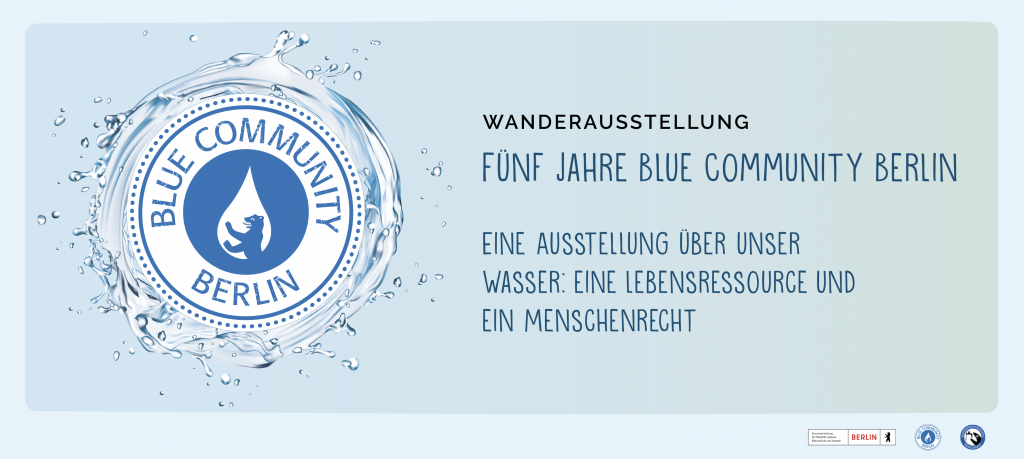
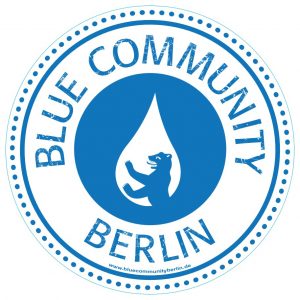
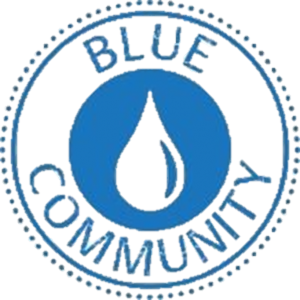

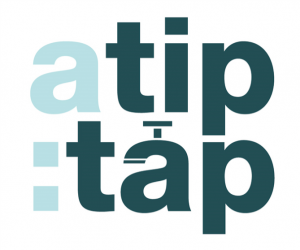
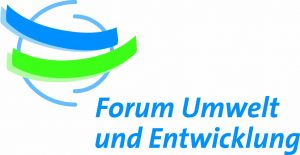
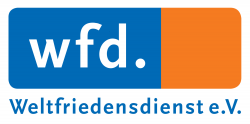

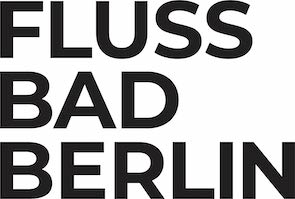
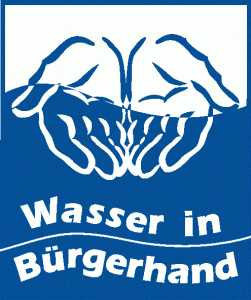

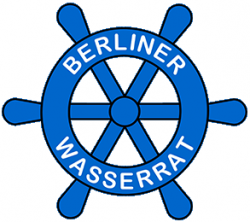

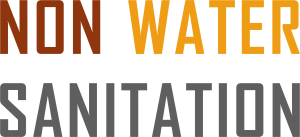
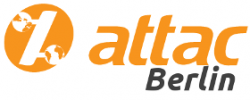

Die Kommentarfunktion ist deaktiviert.